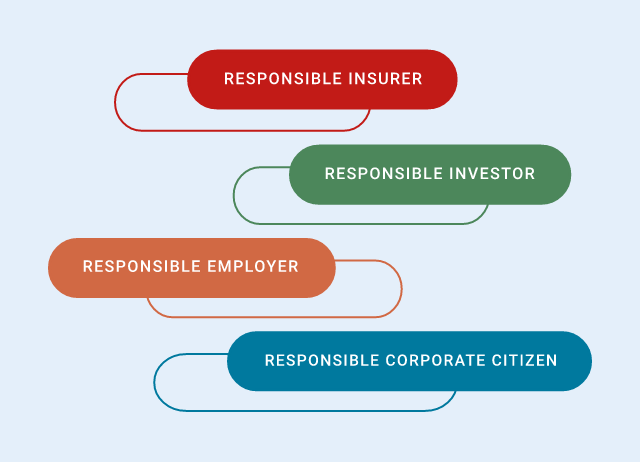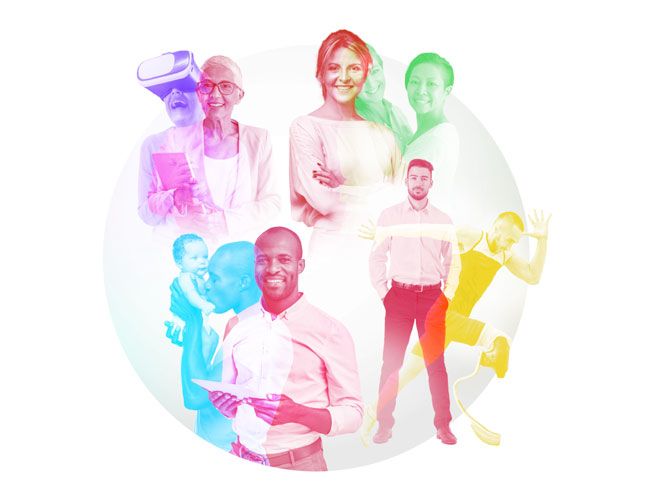17 September 2024
International Equal Pay Day: gender equality rests on closing the gender pay gap
International Equal Pay Day, celebrated on September 18th, is an opportunity to reflect on the significant pay gap between men and women. Generali’s commitment as a Responsible Employer
International Equal Pay Day was established by the United Nations to raise global awareness on the issue of pay inequality and to promote the reduction of the gender pay gap, and is celebrated on September 18th.
What is the gender pay gap?
The term gender pay gap refers to the percentage difference in average annual earning between women and men. In particular, it takes into account three disadvantages faced by women:
- lower hourly wages;
- fewer paid working hours;
- lower employment rates (e.g., due to career breaks to care for children or family members).
This phenomenon is deeply rooted in societies and economies worldwide: no country has yet achieved equal pay between men and women, regardless of economic development or labor market regulation. This not only undermines economic and social well-being but also negatively impacts productivity, innovation, operational efficiency, and business growth.
The Situation globally…
According to data from the International Equal Pay Coalition, women are paid less than men in all regions of the world, with an estimated global gender pay gap of around 20%, which is even wider for women with children.
Additionally, women are more likely to be unemployed than men, with significant regional disparities, and only 28% of employed women worldwide can benefit from paid maternity leave.
Globally, about 65% of people over retirement age who do not receive any regular pension are women. Furthermore, women perform at least two and a half times more unpaid domestic and care work than men.
According to the Global Gender Gap Report 2023, published annually by the World Economic Forum, no country has yet achieved full gender equality, although the top nine countries (Iceland, Norway, Finland, New Zealand, Sweden, Germany, Nicaragua, Namibia, and Lithuania) have closed at least 80% of their gap. For the 14th year in a row, Iceland holds first place with 91.2% and remains the only country to have closed more than 90% of its gender gap.
The global “top five” is completed by Norway (87.9%), Finland (86.3%), Sweden (81.5%), and New Zealand (85.6%). In Europe, Germany (81.5%) ranks sixth overall, Lithuania (80%) ninth, and Belgium (79.6%) tenth. Nicaragua (81.1%) and Namibia (80.2%) complete this year’s top 10, occupying the seventh and eighth positions, respectively.
…and in Europe
Accordig to Eurostat, which measures the gender pay gap in Europe considering companies with 10 or more employees, women earn 12.7% less than their male counterparts. The variations between countries are wide, with gender pay gap values ranging from -0.7% in Luxembourg to the extreme opposite recorded in Estonia (21.3%), Austria (18.4%), and Switzerland (17.9%), while Italy ranks second to last with a value of 4.3%.
Several factors can influence the gender pay gap in different ways across the continent:
- Type of contract: Women are more likely to work part-time, which can negatively affect their overall earnings.
- Gender pay gap and age: the gender pay gap is generally much lower for new labour market entrants and tends to widen with age. However, those differences over age groups can have different patterns across the EU Member States. The gender pay gap might increase with age as a result of the career interruptions women may experience during their working life.
- Sector of employment: In 2022, the majority of the EU Member States recorded a higher gender pay gap (in absolute terms) in the private sector than in the public sector. This might be due to the fact that, in most EU Member States, pay in the public sector is determined by transparent wage grids that apply equally to men and women.
The Gender Pay Gap has significant consequences not only for women but also for the economy and society as a whole. Reducing the pay gap can promote greater economic equity as well as increased productivity and improved social well-being.
Inclusion, Meritocracy, and Talent Development at the Core of Generali’s Approach
As a responsible employer, Generali is committed to promoting diversity, equity, and inclusion in the workplace, training people, cultivating talent in all its forms, and implementing flexible and sustainable working methods, in line with the objectives outlined in the Group’s People Strategy, GPeople24 - Ready for the Next.
This commitment includes promoting a culture based on gender balance and pay equity, with the goal of:
- structurally reducing the gender pay gap (the pay gap across the entire organization, regardless of roles)
- and supporting the ambition to eliminate the equal pay gap (the pay gap for the same job or jobs of equal value) by the end of the 2022-2024 strategic cycle, also promoting female leadership and dedicated training at the Group level.
At the end of 2023, compared to the previous year, the result related to the equal pay gap improved: in other words, the pay gap between men and women with the same job or jobs of equal value decreased by 0.9 percentage points. At the same time, the number of women in managerial and strategic positions continued to grow, demonstrating the commitment to building an inclusive, meritocratic, and sustainable work environment for all Generali employees worldwide.
| Workforce gender breakdown | Value as of 31.12.2023 | Ambition |
| Share of women in total workforce (as % of total workforce) |
51.1% |
50%
|
| Share of women in top management positions (as % of total top management positions) |
34.8% |
40% (target year 2024) |
| Share of women in STEM-related positions (as % of total STEM positions) |
34.6% | 40% (target year 2024) |


